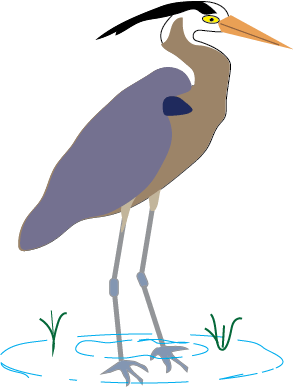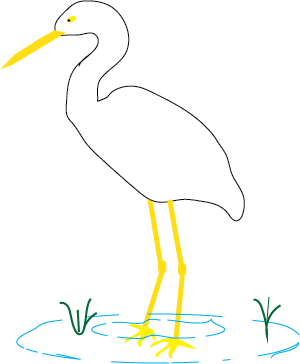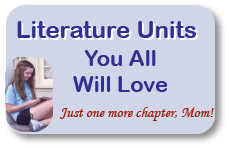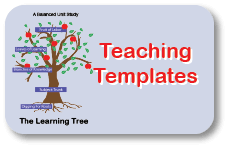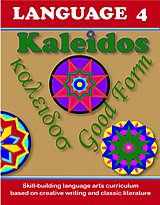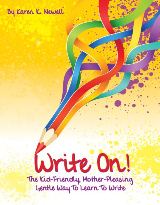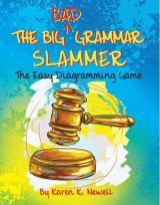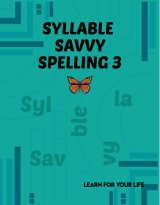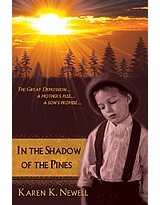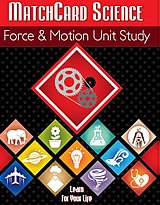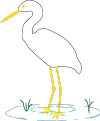
Literature Pointer Questions
Pointer Questions point your readers in the right direction for engaging literature analysis.
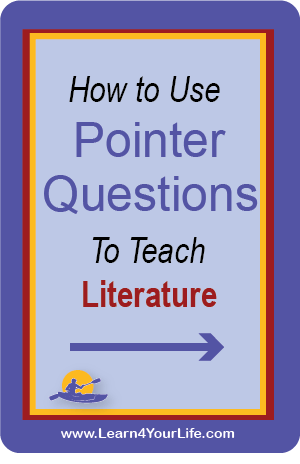
What is a Pointer Question?

Let's break that down in case you didn't catch it all the first time:
Teaching Tool: Much of homework is a quiz to see if students really did their work. A pointer question is more than a quiz. It actually TEACHES the student by POINTING to critical concepts.
Highlights relevant literary elements: On the one hand, those literary elements (symbolism, foreshadowing, character development, etc.) are what makes great literature great.
But on the other hand, the average student may gag on the following question: What did the rose symbolize in this chapter? (Average answer: I don't know and I don't care.)
Action Plot: The action plot is where the action is - at least in most readers' minds. They are focused on what happened and not on why it happened or how someone changed because it happened.
A pointer question points the students to the underlying messages and literary elements embedded in great literature.
Pointer questions connect the what and the why in a gag-free strategy.
Does Pointer Question = Reading Comp Question?
So we could ask a typical reading comprehension question. The smarter, faster-reading, and more abstract-thinking students have a pretty good chance of getting it right. They might have caught those subtle clues regarding motivation and juxtaposition. The other, less literary-savvy students get a lower score. Fair enough, right?GONG! Wrong answer. We want to teach; not quiz.
Pointer Questions and the Big Bad Wolf
Warning: This Could Gag You
Let's use the good, old-fashioned story Little Red-Riding Hood as an example. In this particular version of the tale the wolf represents evil, Riding Hood represents the innocense of youth, and the grandmother represents the wisdom of the ages.You didn't know those characters represented those things? Don't worry. I just made it up for our purpose here.
Now I'm going to assume that you know the basic action plot. Let's also assume you never thought about who represents what.
So assuming you DO know the story, let's see if you can find the right answer to this question?
Why did the wolf tie up Granny?
- a) He did not want the wisdom of Grandma to protect the innocense of childhood.
- b) He was protecting Hood's basket of treats from the greedy granny.
- c) He was practicing knots to earn his scouting badge.
In case that wasn't exciting enough, let's try another one.
The youngest pig demonstrated the theme of The Three Little Pigs when he went to his brother's house. WHY did Junior run to Big Bro Bob's house? He was looking for______
- a) Money and prosperity
- b) Safety
- c) The family heirloom
- d) Self-actualization and inner-harmony
Ok. You will be glad to know those aren't actual questions on any of our unit studies.
Why we use Pointer Questions
We already stated pointer questions are a teaching tool that highlights important literary concepts in such a way that students who know the plot can identify the correct answer.If students complete the unit study activities after each chapter, they will maximize their understanding of the narrative. This is particularly beneficial when students are expected to read several chapters before it is discussed with a group or a leader. They will catch the undertones of Chapter 3 before preceding to Chapter 4.
Sure, we all mean to discuss every, single chapter with each student before they advance to the next chapter. But... well...reality.
Many of our pointer questions are designed to be interactive - talking to the readers and eliciting their reaction. They maintain interest in the book, fill in gaps that young readers often overlook, and build to the climax with the action plot.
And, when appropriate, we aren't opposed to using a little humor or irony to keep them on their proverbial toes.
Are All Questions Pointer Questions?
No, not all questions in Learn For Your Life Literature Unit Studies are pointer questions. There are review questions, discussion questions, and opinion questions. Most units also provide interesting background information relevant to the book.
